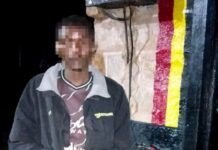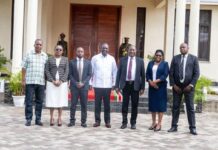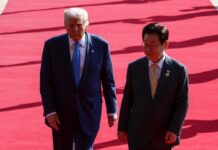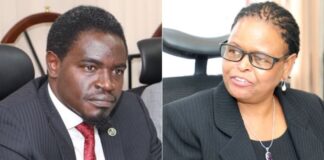Bangladesh marks the one-year anniversary of the protests that triggered a dramatic political shift in the country. What began as a student-led movement to demand reforms quickly escalated into widespread unrest, ultimately leading to the overthrow of Sheikh Hasina, who had ruled the country with an iron fist for 15 years.
As of today, Bangladesh remains in political limbo, with a caretaker government overseeing the nation until the scheduled elections in 2026. Here’s a look back at five key moments that have shaped the country’s journey since the protests erupted.
1. July 1, 2024: Anti-Government Protests Begin
The protests began when university students took to the streets, calling for reforms to the quota system for public sector jobs. They accused Hasina’s government of using the system to stack the civil service with loyalists, securing political dominance. The demands for change came amid growing frustration over Hasina’s fifth term, marked by allegations of electoral fraud and human rights violations.
As the protests gained momentum, violence escalated. The government responded with heavy-handed tactics, including the deployment of soldiers and the imposition of a curfew, but the unrest only intensified. By the end of July, more than 1,400 lives were lost in clashes between protesters and security forces, according to the United Nations. The country’s vital garment industry, one of the world’s largest, was severely impacted by the turmoil.
2. August 5, 2024: Hasina Flees the Country
The tide of unrest reached its peak when thousands of protesters stormed Hasina’s palace. With millions celebrating in the streets, Hasina fled Dhaka by helicopter, seeking refuge in neighboring India. In the wake of her departure, the Bangladesh military announced it would take control, forming an interim government led by army chief General Waker-Uz-Zaman.
Nobel Peace Prize laureate Muhammad Yunus was appointed as the chief adviser to the interim government. Yunus, revered for his microfinance work, inherited a “completely broken down” public administration and embarked on an ambitious program to reform democratic institutions and prevent a return to authoritarian rule.
3. May 24, 2025: Calls for Unity Amid Political Struggles
As the interim government grappled with internal power struggles, Yunus’s administration warned that political instability could undermine the progress made in stabilizing the nation. The government banned Hasina’s Awami League pending the trial of its leaders for their role in the deadly crackdown on protesters.
Meanwhile, the Bangladesh Nationalist Party (BNP), seen as the frontrunner in upcoming elections, pushed for elections to be held by December 2025. However, Yunus remained focused on implementing reforms first and committed to holding the elections by June 2026.
4. June 1, 2025: Hasina Faces Trial
In June 2025, Hasina was put on trial in absentia, charged with orchestrating a “systematic attack” on protesters that amounted to crimes against humanity. Hasina, now in self-imposed exile in India, has rejected the charges, calling them politically motivated. The trial of key figures from her government, including the former police chief and interior minister, has been a crucial demand of various political factions.
5. Early 2026: Elections Loom
With elections scheduled for June 2026, Yunus has been under increasing pressure from political parties, notably the BNP, to expedite the electoral process. The BNP has called for the elections to take place before Ramadan, which begins around February 17, 2026. While Yunus has stated that elections will be held as planned in 2026, he has indicated that the vote could be brought forward if there is substantial progress on the reforms and the ongoing trials.
As Bangladesh navigates this turbulent political period, the nation stands at a crossroads, with hopes for a new democratic chapter balanced against the risk of further unrest. The coming months will be pivotal in shaping the country’s future.
Written By Rodney Mbua

















